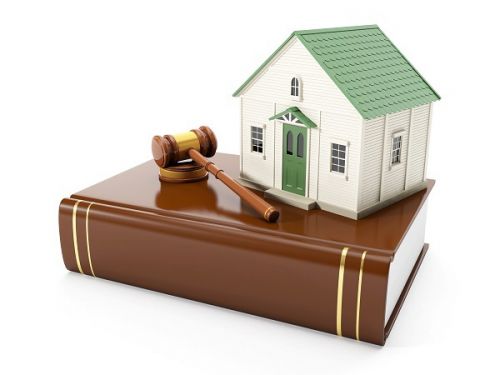Probate (in layman’s terms)- is the legal process of distributing assets of a deceased person(s) to the rightful inheritors or beneficiaries.
You may have heard the term ‘probate’ in the past without knowing its meaning, or maybe you find yourself currently in the probate legal process; either way 2nd Wind Properties is here to help you with your probate real estate transaction.
Beneficiaries of probate properties often find themselves in a whirlwind of familial and legal woes. While dealing with the passing of a loved one they are left to contend with new tax and monetary responsibilities from their inheritance. In some cases, the tax liabilities owed on a particular asset are greater than what the individual can afford. Property wholesalers such as 2nd Wind purchase probate properties with a fair cash offer in order to help alleviate this financial strain and get the homes into the hands of investors ready to repair and restore properties to their former glory.
Our Buying process:
- We pay cash
- We cover most normal closing costs
- We buy directly from you-meaning no commissions for you to pay
- We purchase your house “as is,” so you don’t need to make any repairs or do any cleaning
- We can usually close in your time frame
- We have a respected reputation, and work hard to maintain our strong regional brand through our systems and standards.
Do you have a home to sell? Learn more about our buying process here to get a fast, fair offer on your home.
Below is a great article by Investopedia that goes more in depth on the probate process.
Probate
By JULIA KAGAN
:max_bytes(150000):strip_icc():format(webp)/Julia_Kagan_BW_web_ready-4-4e918378cc90496d84ee23642957234b.jpg)
Updated April 08, 2021Reviewed by THOMAS J. CATALANOTable of Contents
- What Is Probate?
- How Probate Works
- Probate with a Will
- Probate Without a Will
- Is a Probate Always Required?
What Is Probate?
Probate is the term for a legal process in which a will is reviewed to determine whether it is valid and authentic. Probate also refers to the general administering of a deceased person’s will or the estate of a deceased person without a will.
After an asset-holder dies, the court appoints either an executor named in the will or an administrator (if there is no will) to administer the process of probate. This involves collecting the assets of a deceased person to pay any liabilities remaining on the person’s estate, and to distribute the assets of the estate to beneficiaries.https://22d28a795bc19f0b6b7efbdcbe2dfff5.safeframe.googlesyndication.com/safeframe/1-0-38/html/container.html
KEY TAKEAWAYS
- Probate is the legal process for reviewing the assets of a deceased person and determining inheritors.
- Probate proceedings are typically focused on the existence of a will.
- A probate proceeding is not always required upon death but is usually essential when a deceased person’s remaining estate is of high value.
- Individuals can avoid exorbitant probate costs and complexities by having an easily authenticated will or using investment vehicles that do not require probate.
How Probate Works
Probate is the analysis and transfer administration of estate assets previously owned by a deceased person. When a property owner dies, his assets are commonly reviewed by a probate court. The probate court provides the final ruling on the division and distribution of assets to beneficiaries. A probate proceeding will typically begin by analyzing whether or not the deceased person has provided a legalized will.
In many cases, the deceased person has established documentation, which contains instructions on how their assets should be distributed after death. However, in some cases, the deceased does not leave a will.https://22d28a795bc19f0b6b7efbdcbe2dfff5.safeframe.googlesyndication.com/safeframe/1-0-38/html/container.html
Probate with a Will
A deceased person who has provided a will is known as a testator. When a testator dies, the executor of the will is responsible for initiating the probate process. Typically, the executor is a financial advisor. The will can also provide details on a specified executor.
The executor is responsible for filing the will with the probate court. States can have different rules for the timeframe in which a will must be filed after death. Filing the will initiates the probate process. The probate process is a court-supervised proceeding in which the authenticity of the will left behind is proven to be valid and accepted as the true last testament of the deceased. The court officially appoints the executor named in the will, which gives the executor the legal power to act on behalf of the deceased.
The Executor
A will typically designates a legal representative or executor approved by the court. This person is responsible for locating and overseeing all the assets of the deceased. The executor has to estimate the value of the estate by using either the date of death value or the alternate valuation date, as specified by the Internal Revenue Code (IRC).
Most assets that are subject to probate administration come under the supervision of the probate court in the place where the decedent lived at death. The exception is real estate. Probate for real estate may need to be extended to any counties in which the real estate is located.
The executor also has to pay off any taxes and debt owed by the deceased from the estate. Creditors usually have a limited amount of time (approximately one year) from the date of death to make any claims against the estate for money owed to them. Claims that are rejected by the executor can be taken to court where a probate judge will have the final say on whether or not the claim is justified.
The executor is also responsible for filing the final, personal income tax returns on behalf of the deceased. Any estate taxes that are pending can also come due within one year from the date of death. After the inventory of the estate has been taken, the value of assets calculated, and debts paid off, the executor will then seek authorization from the court to distribute whatever is left of the estate to the beneficiaries.
If a deceased person’s estate is insolvent, which means that their debts outweigh their assets, an administrator will likely choose not to initiate probate. In general, individual states may have their own rulings on a statute of limitations for the processing of a will through probate. States can also have thresholds for probate filings.
Probate Without a Will
When a person dies without a will, he is said to have died intestate. An intestate estate is also one where the will presented to the court has been deemed to be invalid. The probate process for an intestate estate includes distributing the decedent’s assets according to state laws. If a deceased person has no assets, probate may not be necessary.
In general, a probate court proceeding usually begins with the appointment of an administrator to oversee the estate of the deceased. The administrator functions as an executor, receiving all legal claims against the estate and paying off the outstanding debts.
The administrator is tasked with locating any legal heirs of the deceased, including surviving spouses, children, and parents. The probate court will assess what assets need to be distributed among the legal heirs and how to distribute them. The probate laws in most states divide property among the surviving spouse and children of the deceased.
If an individual has no will and no heirs, any remaining assets go to the state.
Asset transfer to the government is known as escheatment. States do typically have a timeframe for the claiming of any assets by an heir who may step forward.
Spouses as Joint Property Owners
Community property laws can recognize both spouses as joint property owners in an intestate proceeding. In effect, the distribution hierarchy typically starts with the surviving spouse. If unmarried or widowed at the time of death, assets are usually divided among any surviving children. After a spouse and children are considered, other relatives may also be deemed appropriate for distribution.
Close friends of the deceased will not normally be added to the list of beneficiaries under a state’s probate laws for intestate estates. However, If the deceased had a joint account with right of survivorship or owned property jointly with another, the joint asset would automatically be owned by the surviving partner.

